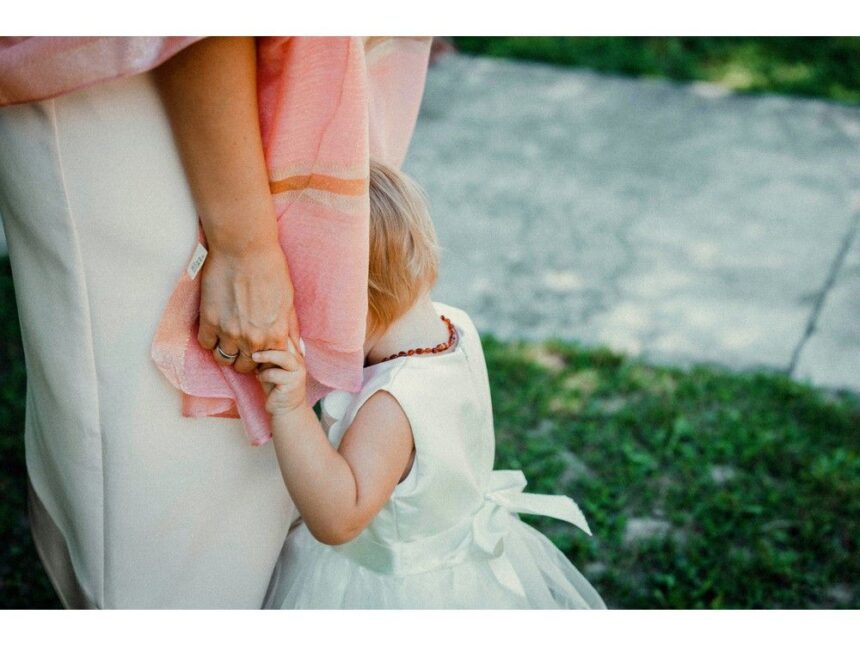Being shy and feeling anxiety over school is common for many children, but there are strategies parents and teachers can use to helpPublished Sep 09, 2025Last updated 1 hour ago5 minute readFor young children starting school for the first time may feel anxiety, especially if they’re more introverted in nature. UnsplashArticle contentIn schools across the Atlantic region, the 2025-2026 school year is now on the books.THIS CONTENT IS RESERVED FOR SUBSCRIBERS ONLY.Subscribe now to access this story and more:Unlimited access to the website and appExclusive access to premium content, newsletters and podcastsFull access to the e-Edition app, an electronic replica of the print edition that you can share, download and comment onEnjoy insights and behind-the-scenes analysis from our award-winning journalistsSupport local journalists and the next generation of journalistsSUBSCRIBE TO UNLOCK MORE ARTICLES.Subscribe or sign in to your account to continue your reading experience.Unlimited access to the website and appExclusive access to premium content, newsletters and podcastsFull access to the e-Edition app, an electronic replica of the print edition that you can share, download and comment onEnjoy insights and behind-the-scenes analysis from our award-winning journalistsSupport local journalists and the next generation of journalistsRegister to unlock more articles.Create an account or sign in to continue your reading experience.Access additional stories every monthShare your thoughts and join the conversation in our commenting communityGet email updates from your favourite authorsSign In or Create an AccountorArticle contentHowever, for some students starting school for the first time, changing schools, or even moving to higher grade levels, may have spent the days leading up to school opening struggling with various levels of anxiety.Article contentArticle contentAnd many of them continue to be distracted by anxiety, which affects their social interaction and academic performance.Article contentArticle contentThese students are often labelled as shy or introverted by their peers, school staff and even their family members.Article contentDr. Brent Macdonald is a clinical psychologist with CRUX Psychology, with locations in Nova Scotia, PEI, and New Brunswick.Article contentMacdonald said he sees a wide range of students challenged by shyness, anxiety and social anxiety at elementary, junior and senior high school, and even at university and post-secondary levels.Article content“It’s pretty much across the developmental span,” he said.Article contentAccording to Macdonald, there is a difference between shyness, introversion and social anxiety in terms of presentation and the severity of the impact on people.Article contentHe said shyness is a trait for some people, not a state. They may be shy in certain situations, like with classmates; however, they are not shy around siblings, cousins, or neighbours.Article contentArticle contentAn introvert can be very social but needs time away from other people to reenergize themselves.Article contentArticle contentAnxiety or social anxiety disorder is when we start to see kids or individuals avoid social interactions actively because those situations cause them extreme anxiety.Article contentThis can result in them refusing to go to school or having a lot of anxiety in the mornings before school.Article content“In many cases, the anxiety starts around this time of year, as we’re approaching new classes, new teachers, those sorts of things. Every Sunday night, for example, there’s that anxiety that starts to build up to the point where they can’t sleep very well. They’re not eating, it affects their academic performance. That’s more of social anxiety,” he said.Article content Dr. Brent Macdonald is a clinical psychologist who sees many students anxious about starting a new school year. ContributedArticle contentMacdonald encourages school staff and parents to avoid labelling altogether.Article content“Really try to avoid labelling your child or a child in the classroom as being shy, because again, they start to identify with that low, and then they will be shy, because that’s the role they’ve been given.”Article contentIdentify early signsArticle contentDr. Patricia Lingley-Pottie is the co-founder, president, and CEO of the Strongest Families Institute, a charity that offers mental health services to children, youth, and their families across the region and nationally.Article contentShe said some anxiety is normal when facing unknowns. However, with time, support, and encouragement, shyness can be short-lived.Article content“The person will warm up and not avoid the situation. They’ll eventually be comfortable enough in that new environment to participate,” she said.Article contentHowever, excessive anxiety and persistent fear can last for multiple weeks and present itself in many ways, such as resistance to attending school or not participating in school the way they used to. They blackout during tests or do not do well on assignments.Article contentAs well, the student can have extreme temper tantrums, sleep disorders and physical symptoms such as headaches and stomach problems.Article contentArticle content Dr. Patricia Lingley-Pottie is the co-founder, president, and CEO of the Strongest Families Institute, a charity that offers mental health services to children, youth, and their families across the region and nationally. Stacie Corrigan PhotographyArticle content“We can identify early signs of anxiety issues, get children effective evidence-based treatment, and prevent these problems from escalating and tracking into adulthood and possibly becoming much, much worse over time and possibly leading to other symptoms like depression,” she said.Article contentIn a statement, the Newfoundland and Labrador Department of Education and Early Childhood Development said, “The NL Schools Student Services team, which includes educational psychologists and Safe and Caring Schools itinerants, are always available to support students, especially when a student is experiencing challenges within the classroom. This team would work in conjunction with school administration and guidance and are available on a regular basis to provide supports to students as needed.”Article contentThe statement said that school administration and educators are in regular contact with families regarding the educational needs of students and often provide resources and information to assist students feel more comfortable in social settings, including at school.Article contentArticle content Rather than labelling children as shy, focus on helping them learn social-emotional skills. UnsplashArticle contentLearning social and life skillsArticle contentAndrea Garland, a social-emotional learning consultant with the Department of Education and Early Years in PEI, focuses on professional learning for teachers using an integrated approach called social-emotional learning.Article content“So, just think of social-emotional learning as the people skills, of the life skills that are just as important as reading in math,” she explained.Article content“It’s really the process of learning how to understand, to manage our own emotions, to build healthy relationships, to set and achieve goals, and also to make good decisions. So, it’s really the process of teaching these life skills in addition to the academic skills that kids learn in school.Article contentWhat can parents do?Article contentGarland provided these tips to parents to help their children prepare for the unknowns that can cause shyness and anxiety leading up to and during the school year:Article content1. Get kids back into daily routines as soon as possible, because there’s less routine and a lot of freedom during summer. Garland said it’s important to establish those routines, such as normal meal and sleep routines.Article content2. Listen to your child’s feelings about returning to school and validate them to support them.Article content“Support the child and say, ‘This is normal, anxiety is normal,’” she said. “’We’re going to get through this. I’m here for you, all those things.’“Article content3. Listen when the child comes home from school, listening to them about how things went and how they’re feeling, helping them identify their emotions around school. Also empower them to problem solve.Article content4. Take your emotions out of the equation.Article content“As a parent, it’s also really important to check your own emotions because often, you know, as children, when they see an anxious parent, then that can actually heighten their anxiety,” Garland said.Article contentArticle content“As much as you can, as a parent, check in on your own emotions and be, basically, an adult who lends their calm to the kids around them.”Article content5. Engage in school events, especially at the beginning of the school term.Article content“Getting in there as a parent and meeting your child’s teachers can go a long way to kind of help ease that anxiety. And for that teacher to be able to set up an environment where your child can be successful,” Garland said.Article content Some children can feel anxiety about school. Helping them is key to ensuring they have a positive experience. UnsplashArticle contentOpen communication keyArticle contentGraland stressed the importance of opening lines of communication with your child and their teachers.Article content“Share important information that you want your child’s teacher to know about your child. So, if there’s something in particular that you know is a trigger for your child or that could help ease some of the anxiety that they’re feeling, reach out to the teacher,” Garland said. “Teachers really appreciate that. Help them to be able to support the child in a holistic way.”Article contentGarland encourages educators and parents to view students from a strength-based perspective rather than focusing on labels such as “shy.”Article content“I think it would be really beneficial for the child that they hear the people around them, whether it be the teacher or the parent, referring to their strengths. And I think that is always a good approach as opposed to the negative connotations that can come from labels,” she said.Article contentArticle content
Why the early days of a new school year is a stressful time for some students











